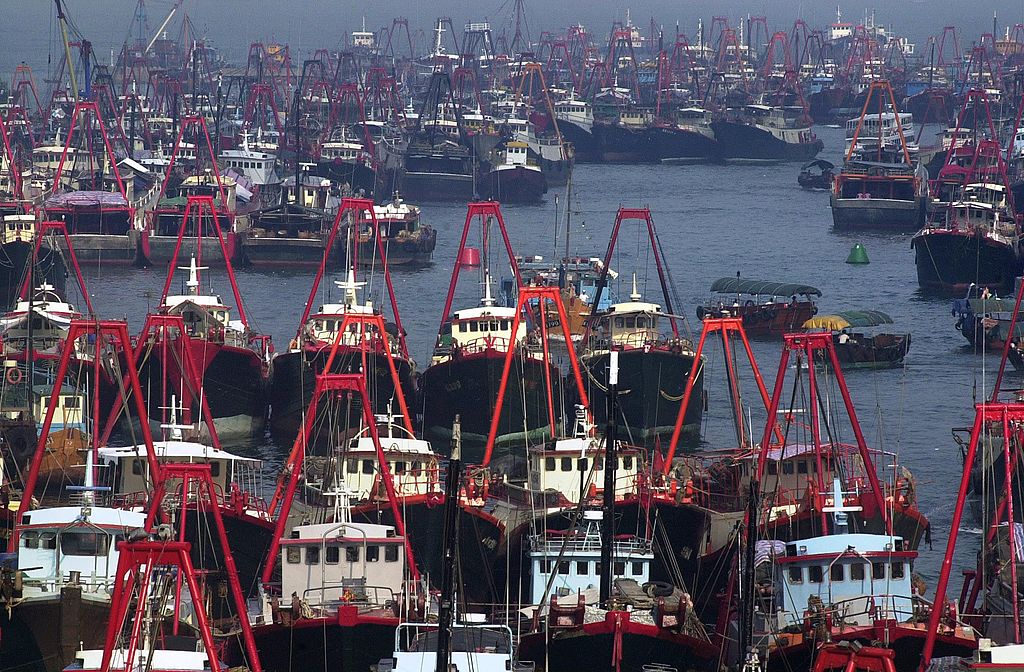ADF STAFF
The Gambia is increasing its efforts to battle illegal, unreported and unregulated (IUU) fishing, which has plagued West Africa for decades.
In August, Gambian authorities and representatives from the United Nations’ Food and Agriculture Organization discussed efforts to implement the Port State Measures Agreement, form a technical working group to tackle IUU fishing and develop a national strategy to address the scourge.
The agreement aims to prevent IUU fishing by adopting and implementing effective measures that promote the long-term conservation and sustainable use of marine life. In February, The Gambia’s Department of Fisheries hosted a nine-day course aimed at improving the capacities of fisheries inspectors and Navy personnel in port inspection procedures.
Since 2019, The Gambia has also partnered with Sea Shepherd Global, an international nonprofit organization, to battle IUU fishing. During 24 hours in early March, The Gambia Navy deployed from a Sea Shepherd vessel and apprehended eight industrial trawlers for offenses ranging from fishing inside protected waters, fishing without a valid license, using undersized mesh size and misreporting catch. The sting operation was based on weeks of intelligence gathering by the country’s Ministry of Defense.
“Sea Shepherd commends the actions of The Gambian government in taking strong action against industrial trawlers that circumvent laws, fishing in protected areas and jeopardizing the livelihoods of local communities,” Peter Hammarstedt, Sea Shepherd’s director of campaigns, said on the organization’s website.
Hammarstedt said the arrests seemingly persuaded industrial trawlers to stay out of prohibited.
The country’s artisanal fishermen have long complained of the presence of foreign industrial trawlers, mostly Chinese, illegally fishing in prohibited areas and cutting their fish nets at sea.
China, which operates the world’s largest distant-water fishing fleet, has long been the world’s worst illegal fishing offender, according to the IUU Fishing Risk Index, formerly known as the IUU Fishing Index. Beijing’s presence in West Africa has transformed the region into the world’s epicenter of illegal fishing.
About 20% of illegally caught fish worldwide comes from waters near The Gambia, Guinea, Guinea-Bissau, Mauritania, Senegal and Sierra Leone, according to a 2023 report by news organization Investigative Journalism Reportika.
“Every month, they cut our nets,” Ibrahima Diatta, a Gambian fisherman who has been working in Sanyang for more than two decades, told Amnesty International. “It is the big boats who do that, night and day. They used to fish at 20 kilometers [from shore] previous years, now they are at 5 kilometers, 8 kilometers, 10 kilometers.
“It is difficult for us because we fish up to 10 kilometers,” Diatta said. “They are here day and night. They fish bonga, ladyfish, barracuda, emperor fish, cuttlefish, squid … they fish everything. They bring their fish to Dakar or China.”
IUU fishing in The Gambia, especially the practice of bottom trawling, has led to significant environmental concerns. Bottom trawling involves dragging a massive net along the ocean floor, scooping up all manner of marine life. The practice kills juvenile fish, leading to declining fish stocks, and destroys ecosystems critical to the survival of marine life.
Overfishing has caused the country’s fish populations, especially bonga and sardinella, to decline to unsustainable levels, Amnesty International reported. As a result, coastal Gambians are going hungry while the livelihoods of an estimated 200,000 people are threatened. Morro Camara, a Gambian fisherman in Sanyang, said that declining fish populations force artisanal fishermen to journey farther out to sea. This is costly, more dangerous and the fishermen often return with little catch.
“The last time I went 10 [kilometers] to go fishing, even then you have those big industrial trawlers, they would come up to five miles,” Camara told Amnesty International. “We have to give them signs that we are there to avoid accidents. Sometimes we would be sitting here and seeing them.”


Comments are closed.